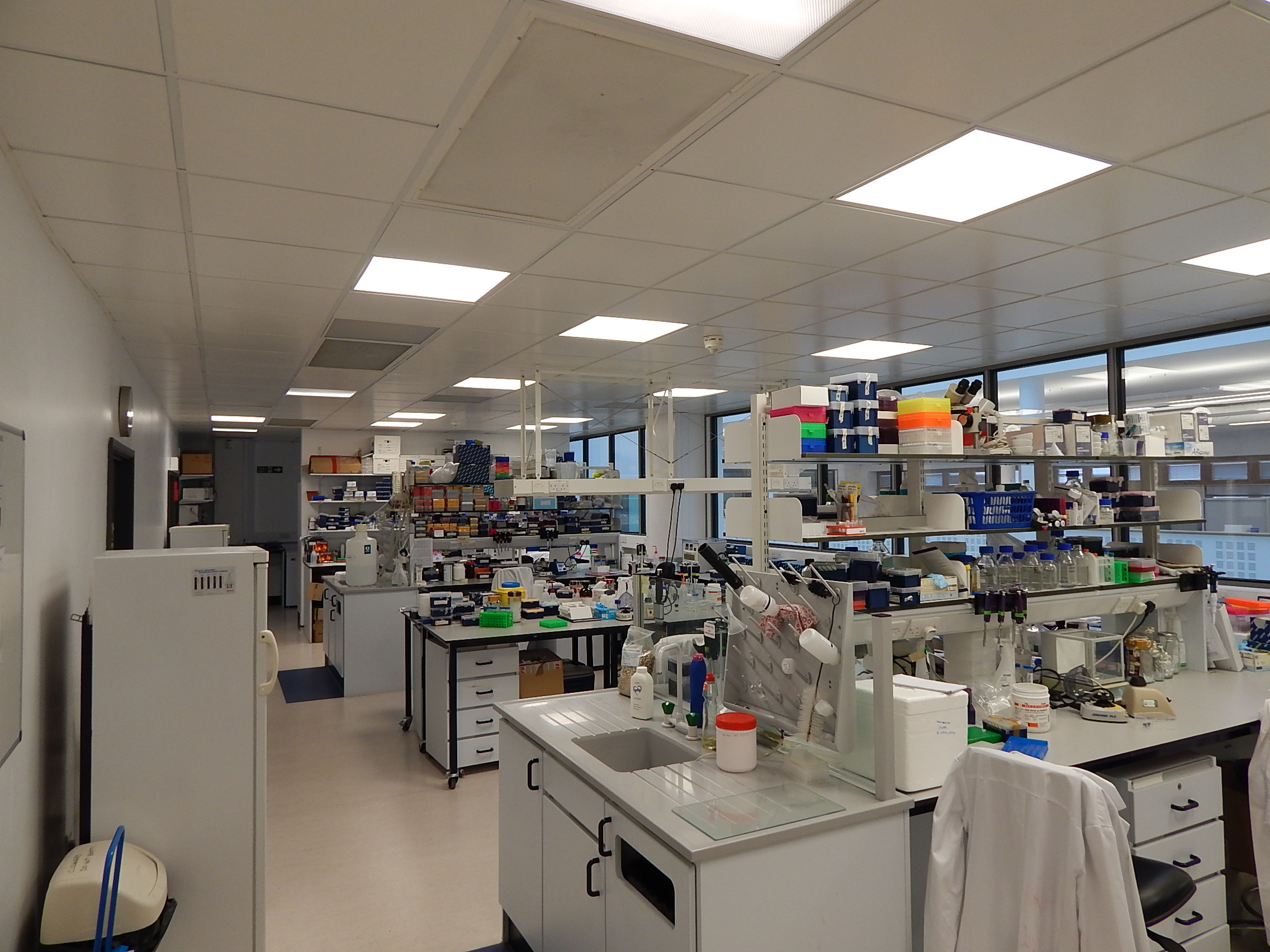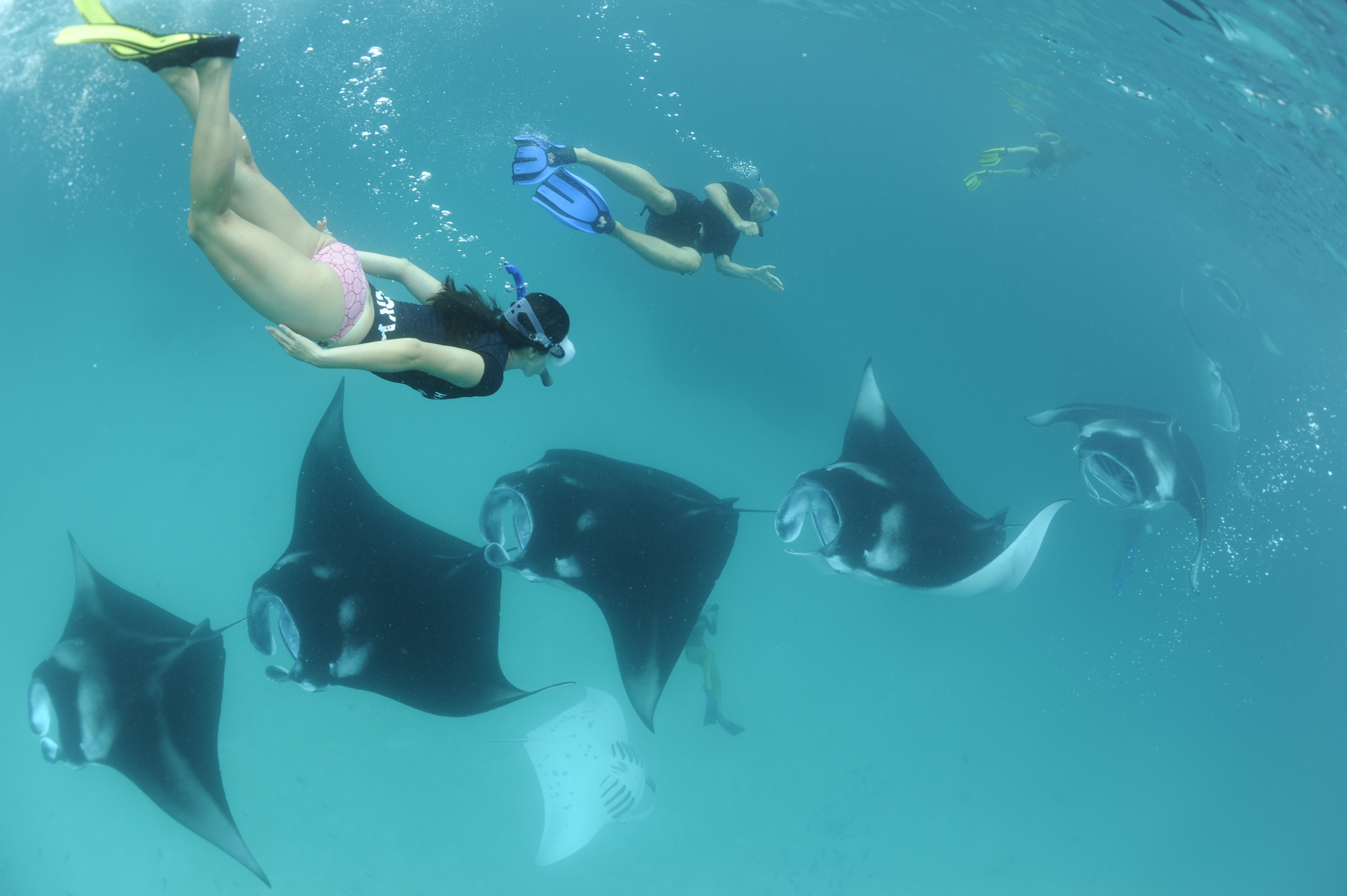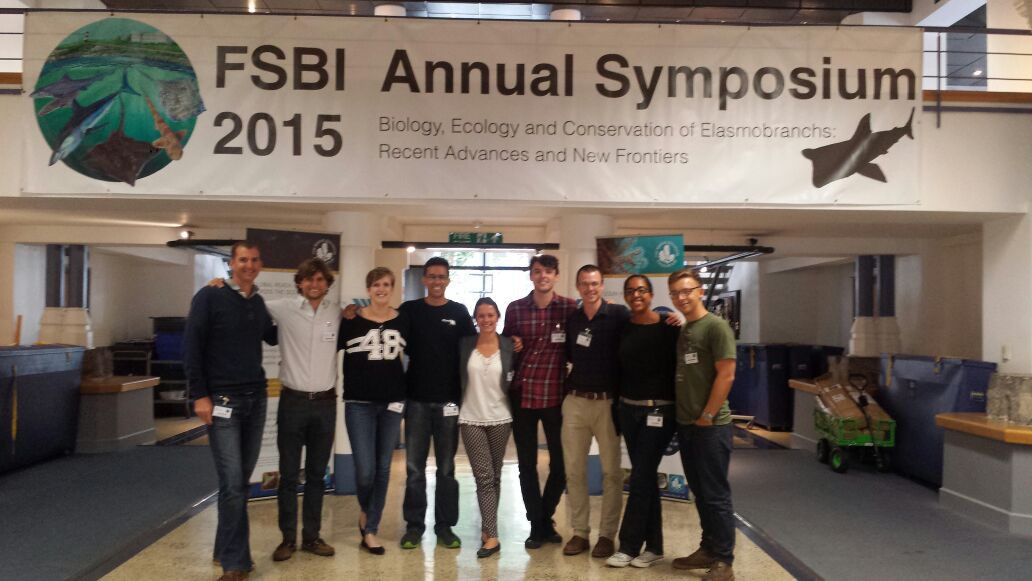Why should we care about marine life? A researcher’s perspective
I have just come to the end of the first year of my PhD, studying manta and devil rays and developing genetic tools for their conservation. I’ve been interested in understanding and preserving marine life for as long as I can remember and something that has astounded me throughout the process so far is the number of people (outside the marine conservation community!) who question the purpose of what I do. When I tell them about it they say, ‘That’s interesting, but why? Don’t you feel like you’re fighting a losing battle?’ or ‘What’s the point? What do those creatures ever do for us?’ This has got me thinking about how we can engage the public and generate greater enthusiasm for marine life – and, just as importantly, how best we can approach conservation policy to encourage and enforce effective measures.

A well-equipped laboratory is a vital component to developing genetic tools for conservation. © Photo by Jane Hosegood Manta Trust
I have yet to speak to a single person who, having seen a manta ray up close in the water, has not been completely awestruck by its grace and magnificence. Nonetheless, people always seem surprised to hear about the level of exploitation of fish stocks and other marine resources, and few make the minor lifestyle changes needed to reduce their own impact. Consumptive exploitation is often paradoxical. For example, the global value of the trade in manta gill plates for use as a pseudo-remedy in some traditional medicines is about $11-million each year. Sounds like a lot of money, right? Compare this with the enormous economic boost of $140-million that comes from tourism associated with people who want to see mantas for themselves – essentially a renewable resource. On a similar note, the oceans are hugely important to all our lives, absorbing large amounts of human-produced carbon dioxide, producing a significant proportion of our animal protein, providing products that are useful in medicine, and buffering against the devastation caused by natural disasters.

Scenes like this attract people from all over the world who want to see and swim with Manta rays. © Photo by Guy Stevens Manta Trust
On the bright side, if you’re reading this blog you’re probably interested to some degree in marine conservation. In my previous blog posts, I have written about my PhD project and how I hope to play my part in the conservation of a group of animals that have inspired so many. I encourage you to read other posts on this page and hear about the amazing array of marine life and the conservation and research techniques being used to protect them. Small changes that can be made on a daily basis, such as buying sustainably sourced fish products, reducing energy consumption and reducing the use of disposable, single-use plastic products like grocery bags, crockery and water bottles, can make a real difference.

With some other members of the Manta Trust team who got together at the FSBI conference last summer. © Photo Manta Trust
Last summer, I was lucky enough to attend the annual conference of the Fisheries Society of the British Isles, where the theme was elasmobranch (shark and ray) ecology and conservation. Nothing boosts motivation more than meeting and chatting with the incredible people from all over the world who are out there every day, working their socks off to protect the diversity beneath the ocean’s surface. The job that we all do is exciting, depressing, frustrating, exhilarating, tedious and stimulating at the same time, but above all it’s incredibly rewarding. This is probably one of very few disciplines that facilitates its own redundancy, because when everyone cares about marine conservation and the oceans are healthy and productive, then our work here is done. I am pessimistic about this happening in my lifetime, but it’s up to you guys to prove me wrong.
